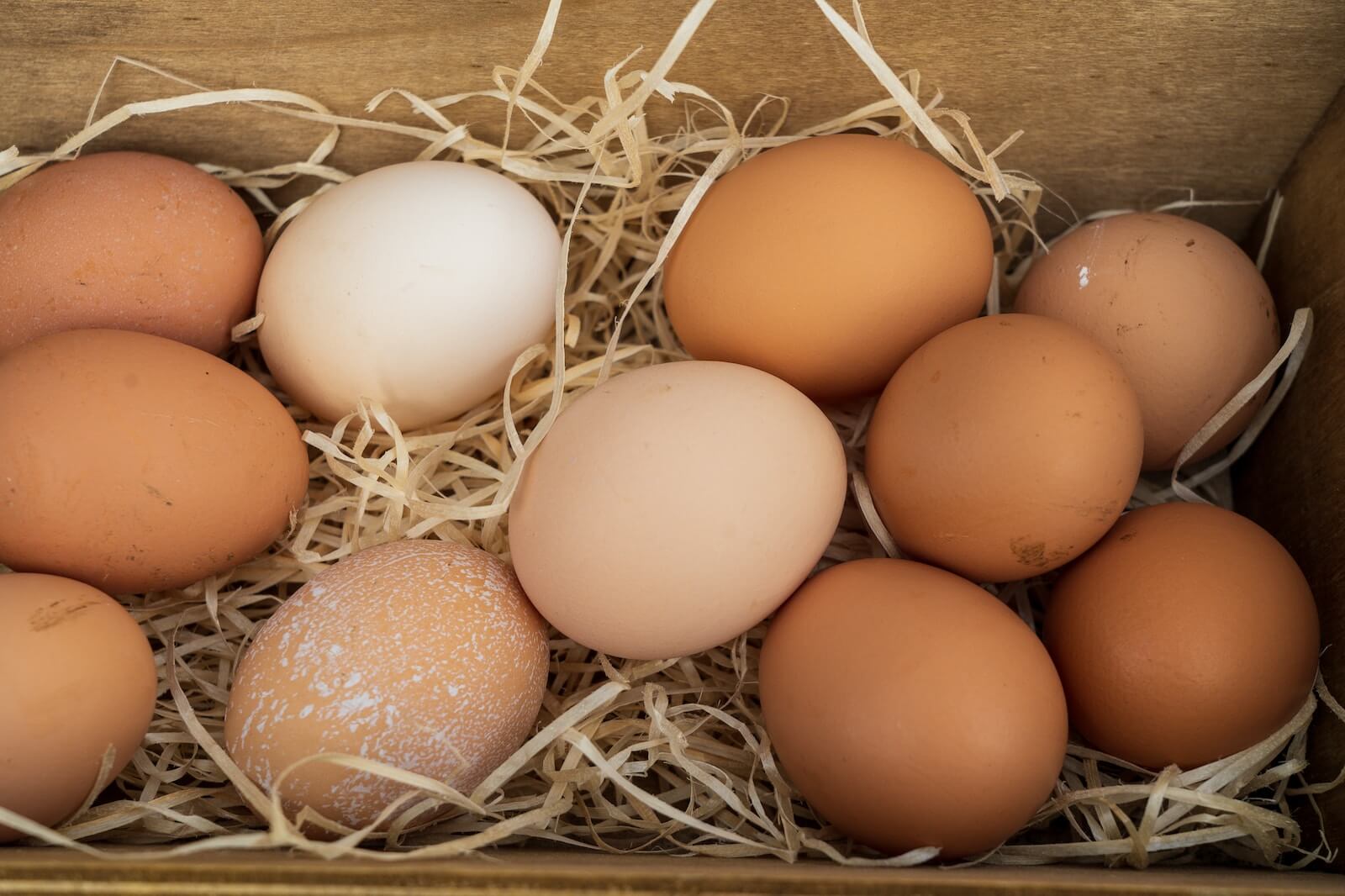In general, poultry birds have no interest in eating eggs. In fact, they are very caring of their eggs. When a chicken goes into a nesting box she nests on the eggs that have already been laid by other chicken, and is very careful not to break them, leave alone eat them.
Under certain circumstances chicken can eat the eggs that they produce. While eggs may contain nutrition value needed by chicken, it is not advisable to allow chicken to eat eggs. For a poultry farmer, this can easily result to a loss of yield.
There is a number of reasons why chicken eat the eggs that they have laid. Here are the top 3 reasons why chicken eat eggs and suggestions how to prevent it.
Egg breakage
If an egg breakage happens in the coop, poultry birds by the nature of their curiosity will want to check it out, and eventually will eat its content. Egg breakage may occur if nesting surface is too hard, or an egg falls from nesting place to a hard surface among other reasons.
When an egg breaks and spills its content, poultry birds are likely to eat it. Once they have tasted the delicacy of the egg, chicken will be on the look out for broken eggs. Additionally, they may also develop a habit of trying to break other eggs by pecking them with their beaks.
To prevent egg breakage, ensure that nesting boxes are cushioned with soft material. Furthermore, line the exit side of laying or nesting boxes to prevent eggs from rolling out of them, as birds move within the boxes.
Low feed quality
Chicken are also known to eat eggs if their feed is insufficient and, or of low quality. That is, if they lack sufficient nutrients from their feed.

To prevent this, ensure that you feed your flocks high quality and nutritional rich feeds. If you are unsure of the feed quality or suspect that your chicken are eating eggs, consult a certified vet to figure out a way to supplement their feed.
Lack of enough nesting spaces
Poultry birds like to lay their eggs in the same nesting spaces as their counterparts, be they boxes or other kinds of spaces. If there are not enough nesting spaces, chicken may result to fighting for their turn in them. Such fighting include cramming themselves into a space or pecking at birds that are already in the space. The ensuing commotion may cause egg breakage, and before long your birds will realize that a broken egg’s content is food.
It is advisable to have enough laying boxes or nesting spaces for your flock, to minimize crowding in them.

The question then becomes, how many nesting boxes per bird do you need to have? The answer can vary depending on who you ask. The word on the internet is 1 box per 4 to 8 birds. Polystead suggests 1 box per 4 to 6 birds:
| Boxes | Per number of birds |
| 1 | 3 – 4 |
| 1 | 6 – 8 (if space is an issue) |
If you are into DIY, The Happy Chicken Coop’s got you covered with 13 different types of nesting boxes and how you can make them.
Key takeaways
- As a rule of thumb build enough nesting spaces for your birds
- Additionally ensure that nesting spaces are lined to prevent eggs from rolling out
- Ensure your flocks have sufficient and nutritious feeds
- If an egg breaks during collection, clean it up. Do not let the chicken eat it
- Always consult your flock supplier and certified vet on how to best care for your flocks
- With keeping flock records you can tell if your chicken are preying on their eggs or not

